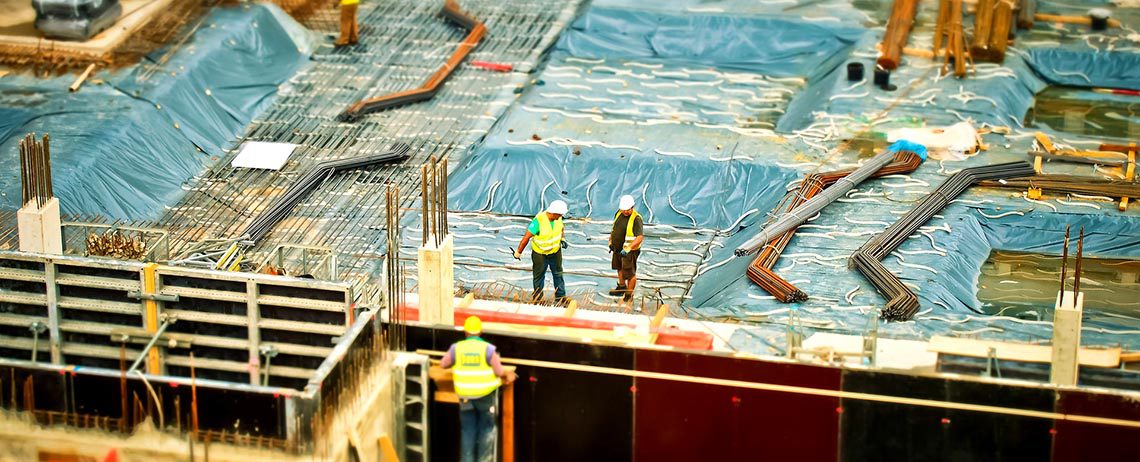How to Master Integrated Project Delivery (IPD)
Industry Trends | By | 11 Oct 2016 | 3 minute read

What is IPD?
Integrated project delivery (IPD) is a method and school of thought that involves all stakeholders early on in project discussions. It brings the owner, general contractor, architect and sometimes other subcontractors and suppliers together. They’ll discuss project goals, costs, risk sharing, compensation and general responsibilities. In an industry that hasn’t seen a substantial increase in productivity since the 50’s, IPD has been touted as the solution to the stale design-bid-build approach that many construction firms currently use.
According to Layne Thompson, Magleby Construction Sun Valley Group Manager, IPD has an incredible amount of benefits. In a survey that Bradley Corp recently conducted, companies reported better:
- Schedule predictability
- Cost and budget control
- Quality of building and adherence to design goals
- Quality of building in technical performance goals
- Quantity and handling of changes
- Morale of stakeholders
- Overall value of project
Get Everyone On Board Early
It’s not always clear where the lines blur between architects, owners, contractors and subcontractors. When each stakeholder only sees their specific step or responsibility in a large project, it creates a lot of potential for friction in the handoffs between responsibilities. Stakeholders may make incorrect assumptions, or draw conclusions from incomplete information. It’s nearly impossible to set an accurate budget if one stakeholder doesn’t have all the information.
Set up an LLC using the top LLC formation services with all involved parties to begin the IPD process. It then needs to outline objectives, purpose, shared compensation and rewards, and risk.
Keep Communication Lines Open
Of course, we cannot plan each detail from the very beginning of a project, even with integrated project management. Ted Smith, Director of Education and Loss Prevention at E Light Electric, collaborates with his team in real-time with mobile devices in the field. “Bids are made based on the information known at the time and as construction progresses, changes occur frequently, increasing time and cost for the project. Carefully tracking and communicating these changes will make the difference in the success and the profitability of the project.”
In order to be effective, you need to communicate changes as quickly as possible. E Light Electric has started using SafetyCulture iAuditor for operations of daily reports. The superintendent can uses it to log the activities of the day. He reports impacts and disruptions that affect his work, deliveries. He then documents the work completed throughout the day. Superintendents begin a report in the morning and edit throughout the day. They can record changes in real time and insert pictures and drawings if needed.
This means the superintendents don’t have to wait until the end of the day to go back to the office and hope to remember everything important. At the end of the day, they can simply fill in the last details, export it and send it on its way to their Project Manager and Project Coordinator. Everyone is kept up to date and a detailed record of the day is stored away.
Track Results, Update Processes and Maintain Relationships
You put so much effort into an integrated project delivery system, so don’t start from scratch on the next project. Then, track the projected vs. actual costs for raw materials and labor, and see how close the real spend is. Update your bid software to ensure the bids get more accurate with each new project. Working with the same architects, contractors or subcontractors will also ensure you can improve upon your lean building practices, similar to how lean manufacturing leverages collective knowledge and improvement.
Integrated project delivery is a new way of thinking for most construction companies. It may require a certain amount of persuading to get everyone on board. Construction firms are already starting to reap the benefits of trusting stakeholders to make the right decisions if given the opportunity. IPD can also take some more time in the initial phases in order to negotiate contracts. This upfront time investment will benefit the project stakeholders later when the project does not run long or go over budget.
Important Notice
The information contained in this article is general in nature and you should consider whether the information is appropriate to your specific needs. Legal and other matters referred to in this article are based on our interpretation of laws existing at the time and should not be relied on in place of professional advice. We are not responsible for the content of any site owned by a third party that may be linked to this article. SafetyCulture disclaims all liability (except for any liability which by law cannot be excluded) for any error, inaccuracy, or omission from the information contained in this article, any site linked to this article, and any loss or damage suffered by any person directly or indirectly through relying on this information.





